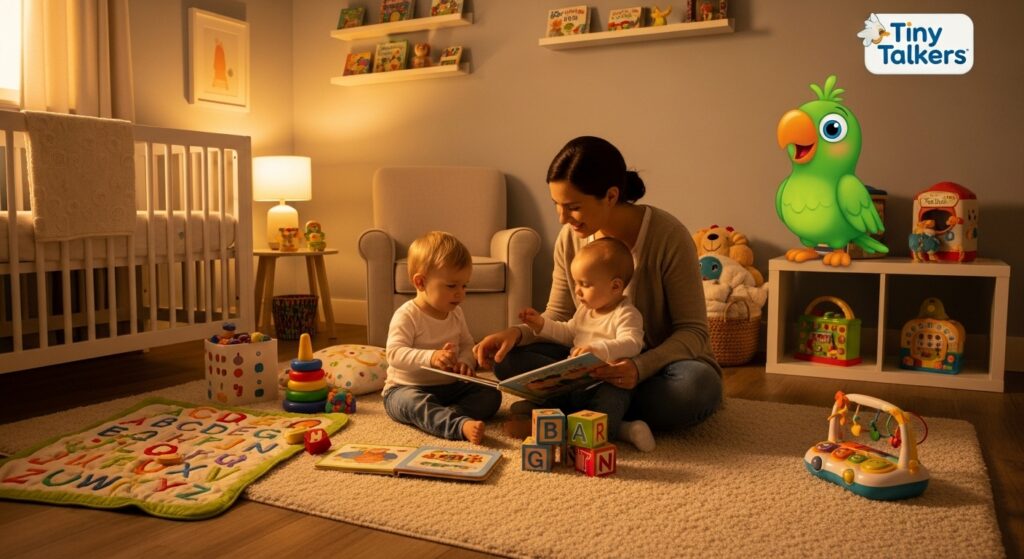Understanding Early Communication
As parents, witnessing the first smile or hearing the first “mama” or “dada” is an exhilarating experience. These milestones are not only adorable but also crucial indicators of your child’s development. Pediatricians emphasize the importance of understanding and supporting early communication in toddlers as it lays the foundation for future language skills and cognitive development.
The Importance of Early Communication
Early communication in toddlers is more than just words; it’s about understanding gestures, facial expressions, and sounds. These elements are key indicators of how children perceive and interact with the world around them. Pediatricians highlight several reasons why fostering early communication is essential:
-
Language Development: Early communication skills are the building blocks for language development. Engaging in back-and-forth interactions with your toddler can help them learn new words and phrases.
-
Cognitive Growth: When toddlers communicate, they are effectively processing information, which supports cognitive development. Understanding and responding to their verbal and non-verbal cues helps strengthen their brain connections.
-
Social Skills: Communication is a social tool. By interacting with others, toddlers learn essential social skills such as taking turns, listening, and understanding social cues.
-
Emotional Development: Expressing themselves helps toddlers manage emotions and develop empathy. When children feel understood, they are more likely to express their feelings openly.
Recognizing Early Communication Milestones
Pediatricians want parents to be aware of typical communication milestones, as they can vary widely among children. Understanding these milestones can help you identify any areas where your child may need additional support:
- 6-12 Months: Babbling begins, and babies start to recognize their names. They may use gestures like waving or pointing.
- 12-18 Months: First words typically emerge. Toddlers may understand simple instructions and start to mimic words.
- 18-24 Months: A vocabulary explosion often occurs, with toddlers using 50 to 100 words and forming simple two-word phrases.
- 24-36 Months: Children begin to use more complex sentences and have a vocabulary of about 200-300 words.
Encouraging Early Communication
There are several strategies parents can use to encourage early communication, all of which can seamlessly integrate into daily routines:
-
Talk to Your Toddler: Narrate your actions and describe the environment to expose them to a rich vocabulary. Use simple language and repeat words to reinforce learning.
-
Read Together: Reading is a powerful tool for language development. Choose books with colorful pictures and simple text that encourage interaction, such as pointing out animals or objects.
-
Use Gestures: Pair words with gestures to help toddlers make connections. For example, wave while saying “bye-bye” or nod when agreeing.
-
Sing and Play: Songs and nursery rhymes are not only fun but also introduce rhythm and new words. Interactive games like peek-a-boo can also boost communication skills.
-
Listen and Respond: Pay attention to your toddler’s attempts to communicate, whether through sounds, words, or gestures. Promptly responding encourages further interaction.
Recognizing Communication Challenges
While variations in development are normal, some signs may indicate that a child could benefit from additional support. Pediatricians advise parents to be mindful of the following:
- Lack of response to sound or name by 6-12 months.
- Limited or no babbling by 12 months.
- Not speaking any words by 18 months.
- Difficulty understanding simple instructions by 24 months.
- Limited interest in social interactions with peers or caregivers.
If any of these signs are present, consulting a pediatrician or a speech-language pathologist can provide guidance and resources for effective interventions.
The Role of Pediatricians
Pediatricians play a vital role in monitoring and supporting early communication. During well-child visits, they assess your child’s language development and can identify early signs of communication challenges. They provide valuable resources, suggest appropriate interventions, and may refer you to specialists if needed.
Building a Supportive Environment
Creating a nurturing environment is crucial for promoting early communication. Consider the following tips to enhance your child’s learning experience:
-
Limit Screen Time: Excessive screen time can hinder interactive communication. Instead, prioritize activities that require personal interaction.
-
Encourage Peer Interaction: Organize playdates or group activities where your toddler can interact with other children. Social interactions can stimulate language development.
-
Model Good Communication: Demonstrating effective communication, such as active listening and clear speech, sets a positive example for your toddler to follow.
-
Be Patient and Positive: Celebrate every small achievement and be patient with your child’s pace of learning. Positive reinforcement boosts confidence and encourages continued efforts.
Conclusion
Understanding and supporting early communication in toddlers is a rewarding journey that requires patience, attentiveness, and encouragement. By recognizing milestones, fostering a communicative environment, and addressing any potential challenges, you are setting the stage for your child’s successful language development and social growth. Remember, each child is unique, and progress may vary, but with your nurturing support and the guidance of pediatricians, your toddler will have the best foundation for effective communication skills.

